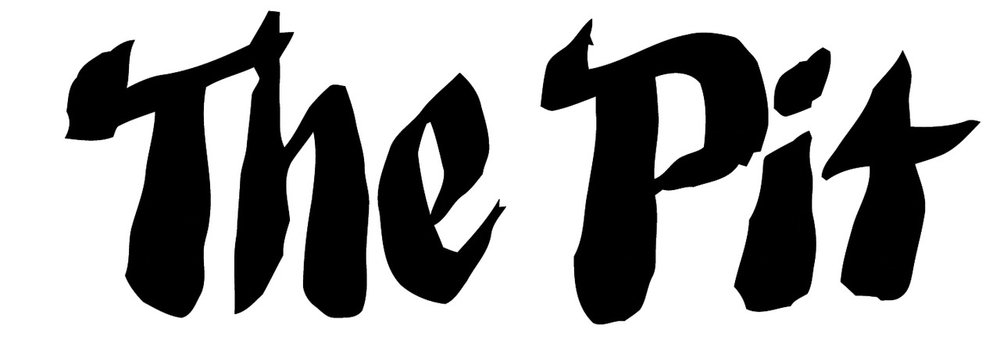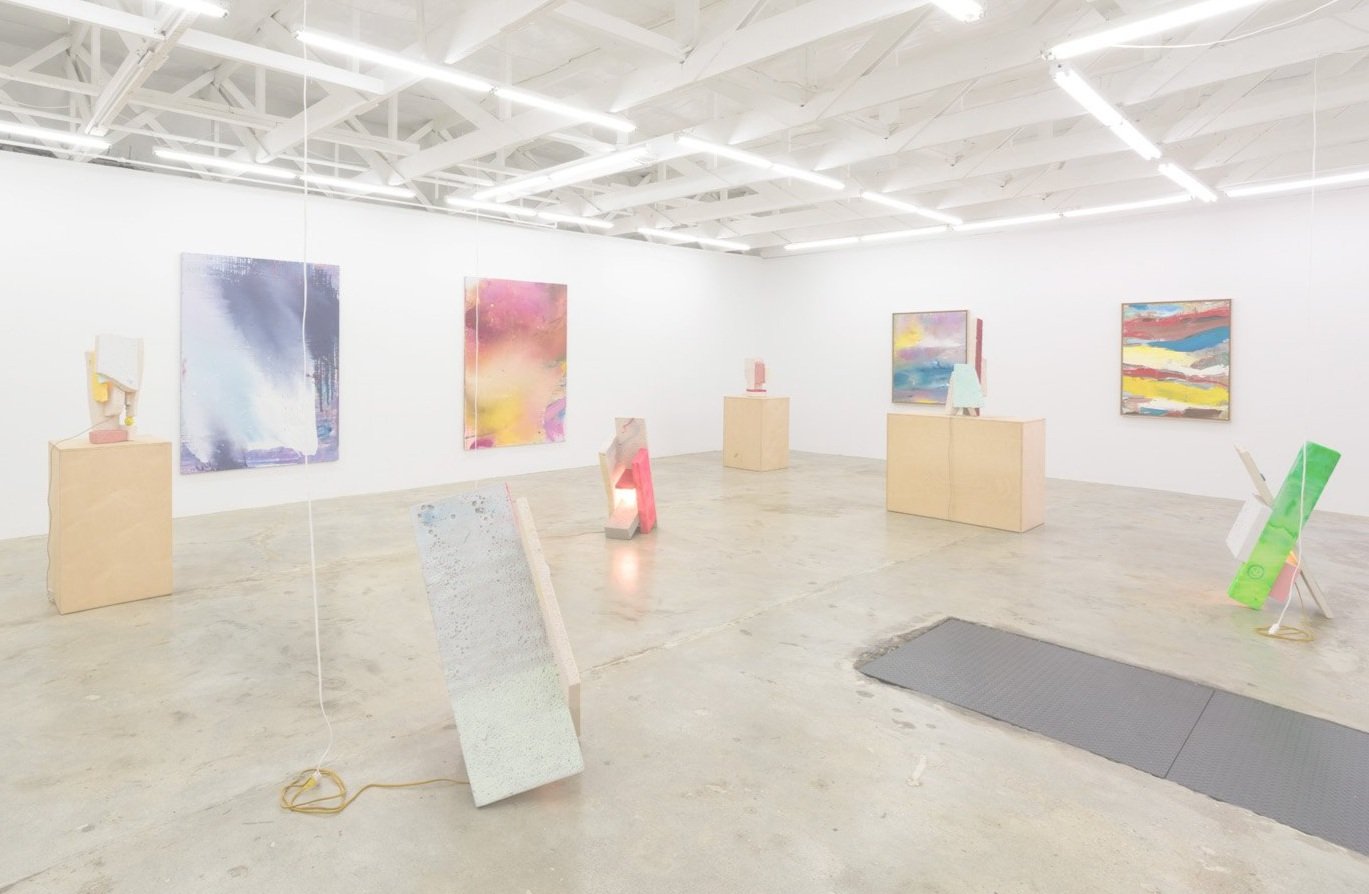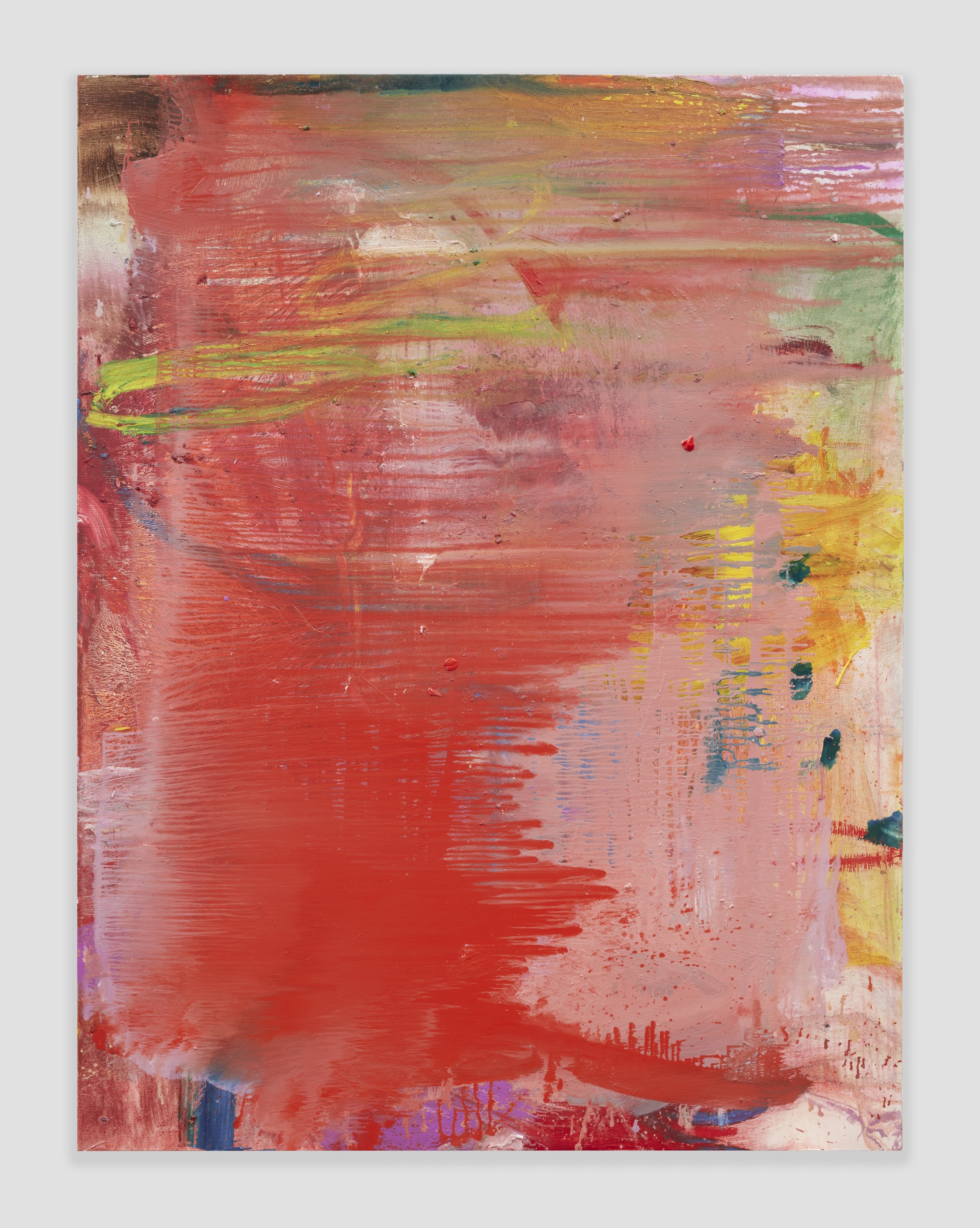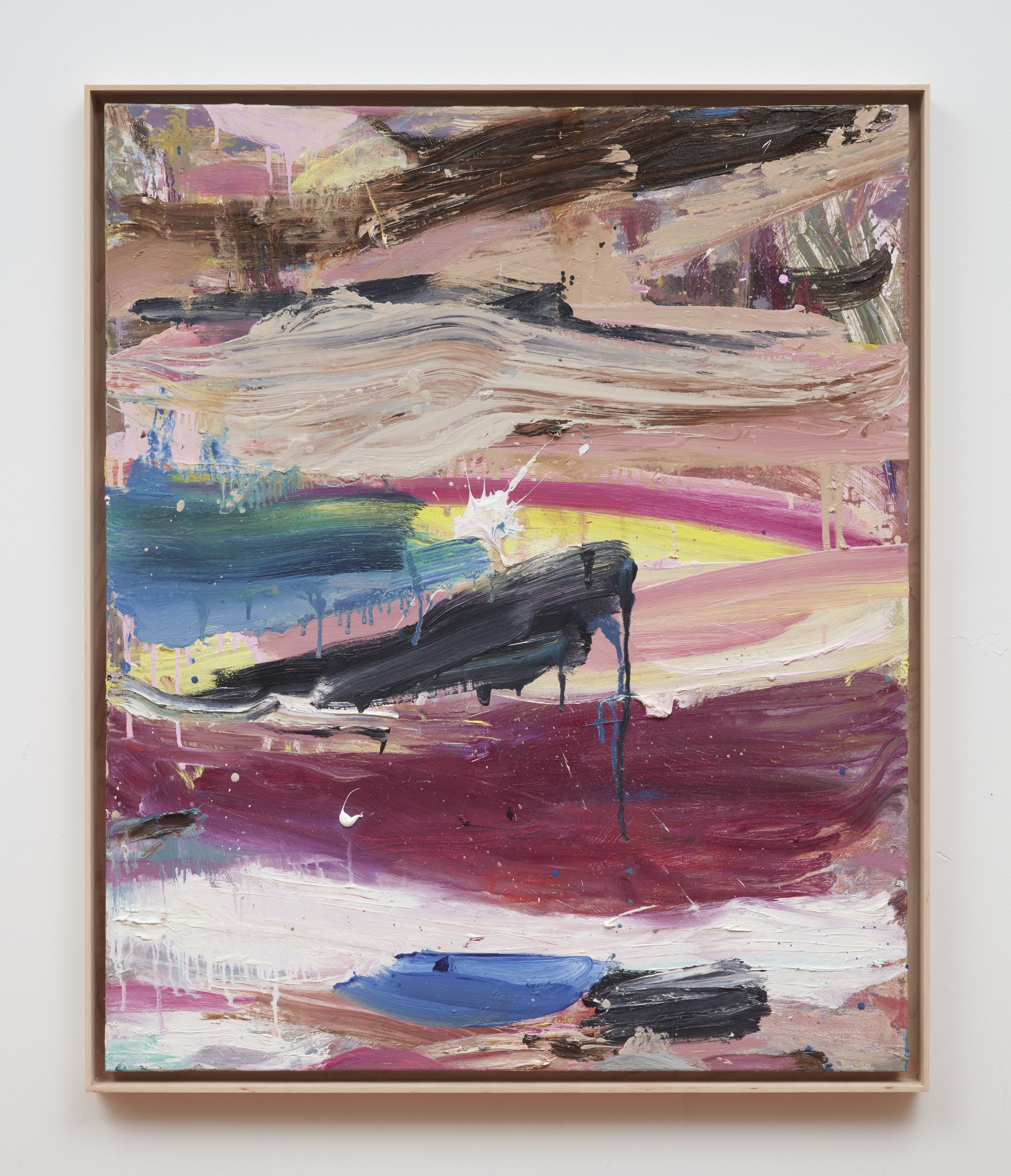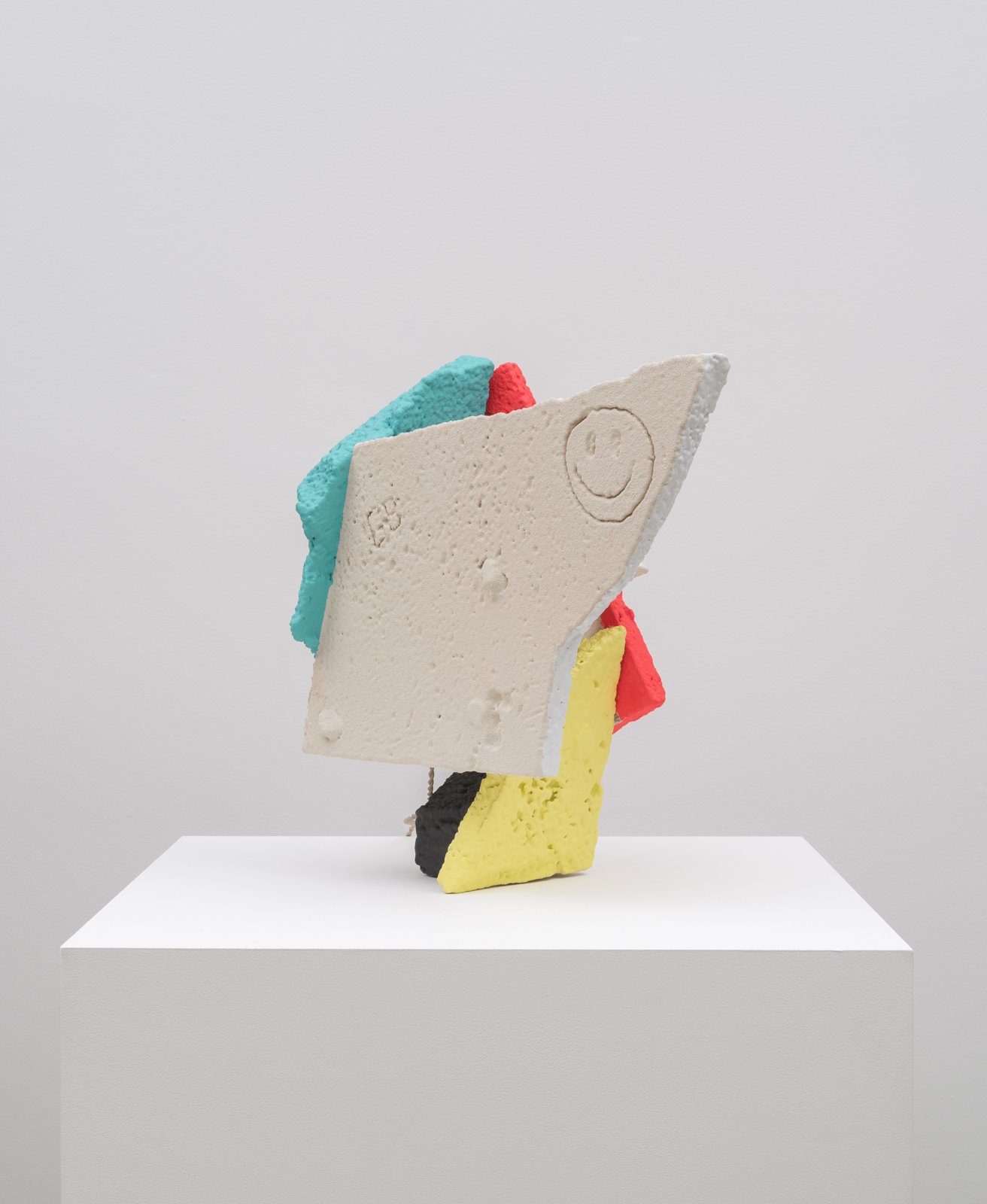Federico de Francesco and Emmett Moore
Federico de Francesco and Emmett Moore
October 29 - December 17, 2022
The Pit Los Angeles
The Pit is delighted to present a two-person exhibition of paintings by Federico de Francesco and sculptures by Emmett Moore, who are based in New York City and Miami respectively. This is the first exhibition in Los Angeles for both artists. The exhibition will be on view from October 29 - December 17, 2022 with an opening reception on Saturday October 29 from 5-7pm. De Francesco and Moore differ from the other significantly, but coincide on concepts emanating from where land meets the sea, from architectural ruins and the geologic (Moore) to sense-memory and the painterly process (de Francesco).
Emmett Moore’s works, all doubling as lamps, totter the line between the functional and non-functional, design and sculpture. Long interested in abandoned architecture, grottos, and derelict spaces, Moore’s sculptures are both structural and unique. They make use of industrial scraps, cast-offs, and natural materials, absorbing their qualities and strengths into new compound forms. To this end, he composes his works with found slabs of expanded polystyrene foam (EPS) coated in a concrete paint mixture, to which he adds coral rock; it is the same material that over hundreds of thousands of years became the limestone underlying Miami. Upon close inspection, Moore adds other embellishments, like scratchiti and found objects to his surfaces, built up like the years of paint and graffiti that accrue on architectural ruins. That he occasionally punctuates these surfaces with vintage faux fruit, commingling Dutch still life with derelict structures, speaks to his playfulness with anachronism. But Moore’s overarching juxtaposition lies in his geologic and architectural interests: They are paired with nostalgia––the limestone of memory––not only for 1980s punk music and the DIY culture in which he took part, but the architectural ruins that served as its haunts. In this spirit, Moore titled several works after songs from this era, while others works make reference to particular sites, such as Sunken City in San Pedro. Through such details, Moore honestly reflects the natural and cultural conditions that gave rise to his aesthetic ethos.
In the paintings of Federico de Francesco, one sees atmospheric passages and forceful gestures, indicating a dialectic between air and substance, flatness and volume. In several paintings, with their soft blends and aqueous applications, they imply ties to his memories at sea or on the beach, in particular, Calabria, Italy, his native region. He allows spills, washes, and layered dissolves to aerate the space in his paintings, in much the same way oceans can hamper visibility with winds, spray, and mist, obscuring the horizon and perspectival space. While he tends to work from studies or past works, these series appear to obey a formal logic governed by a distinct sense-memory, unfolding over time through chance and skill; that is, he negotiates between them, teasing out resulting color/spatial relationships until they reach a solidity, as if finally seeing land from a boat at sea on a blustery evening. His horizontal gestures make more overt reference to landscapes meeting the ocean, or even water itself as it ripples and bends. They have a brimming substance, as if the ambient “empty” space of the atmospheric passages were suddenly filled by a rush of stored elastic energy. Within each painting, a sense of contraction and expansion occurs, a filling and receding. There’s a musicality to such movement. That de Francesco was classically trained as a violinist should come as a mild surprise. They are open and free paintings, calling upon a multitude of skills, experiences, and accordant gestures.
For more information email us at info@the-pit.la
Federico de Francesco, Marathi I, 2022. Oil, Oil Stick, Wax and Marble Dust on Canvas. 78 x 60 in.
Federico de Francesco, Marathi III, 2022. Oil, Oil Stick, Wax and Marble Dust on Canvas. 78 x 60 in.
Federico de Francesco, Cavinia I, 2022. Oil and Oil Stick on Canvas. 48 x 40 in.
Federico de Francesco, Cavinia III, 2022. Oil and Oil Stick on Canvas. 48 x 40 in.
Federico de Francesco, Marathi II, 2022. Oil, Oil Stick, Wax and Marble Dust on Canvas. 78 x 60 in.
Federico de Francesco, Marathi IV, 2022. Oil, Oil Stick, Wax and Marble Dust on Canvas. 78 x 60 in.
Federico de Francesco, Cavinia VI, 2022. Oil and Oil Stick on Canvas. 48 x 40 in.
Federico de Francesco, Cavinia IV, 2022. Oil and Oil Stick on Canvas. 48 x 40 in.
Federico de Francesco, Cavinia V, 2022. Oil and Oil Stick on Canvas. 48 x 40 in.
Emmett Moore, Krome, 2022, Found EPS, Coral Rock, Found objects, Urethane, Electrical Hardware, Latex Paint, Acrylic Paint, 32 x 19 x 17 in.
Emmett Moore, Slab City (California Uber Alles), 2022, Found EPS, Coral Rock, Found Objects, Urethane, Electrical Hardware, Latex Paint, Acrylic Paint, 39 x 18 x 33 in.
Emmett Moore, Sutro (Where Eagles Dare), 2022, Found EPS, Coral Rock, Found Objects, Urethane, Electrical Hardware, Latex Paint, Acrylic Paint, 39 x 18 x 33 in.
Emmett Moore, Winged Victory (Smiley), 2022, Found EPS, Coral Rock, Found Objects, Urethane, Electrical Hardware, Latex Paint, Acrylic Paint, 23 x 12 x 24 in.
Emmett Moore, Red Rock, 2022, Found EPS, Coral Rock, Found objects, Urethane, Electrical Hardware, Latex Paint, Acrylic Paint, 21 x 11 x 11 in.
Emmett Moore, Sunken Tower (Cry Little Sister), 2022, Found EPS, Coral Rock, Found objects, Urethane, Electrical Hardware, Latex Paint, Acrylic Paint, 41 x 21 x 13 in.
Emmett Moore, Still Life with Lemon (Dutchmaster Wine), 2022, Found EPS, Coral Rock, Found Objects, Vintage Faux Lemon, Urethane, Electrical Hardware, Latex Paint, Acrylic Paint, 25½ x 12 x 11 in.
Emmett Moore, The Sacred and Profane (Skate or Die), 2022, Found EPS, Coral Rock, Found Objects, Vintage Faux Apple, Urethane, Electrical Hardware, Latex Paint, Acrylic Paint, 35 x 15½ x 16 in.
